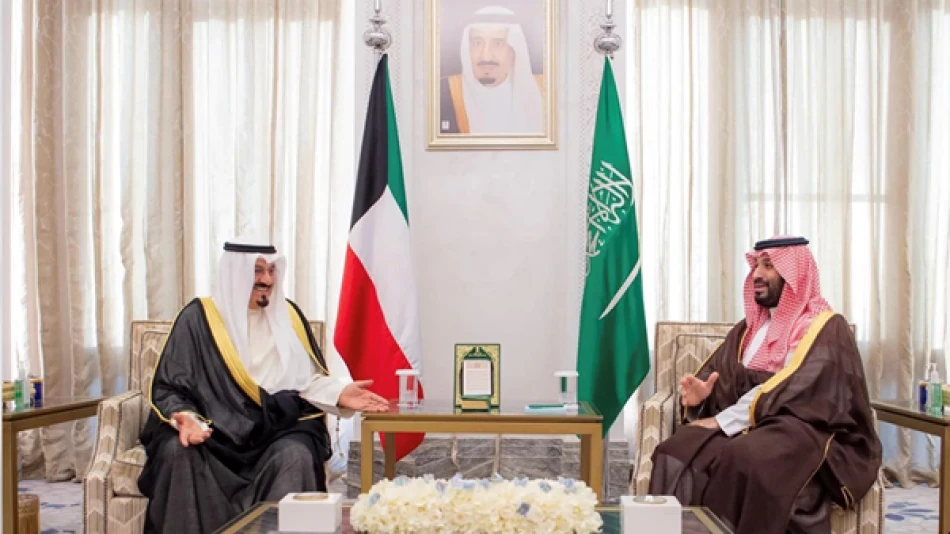
Saudi Crown Prince and Kuwaiti PM Discuss Strengthening Bilateral Cooperation
Saudi Crown Prince and Kuwaiti PM Deepen Strategic Partnership in High-Stakes NEOM Meeting
Saudi Crown Prince Mohammed bin Salman hosted Kuwaiti Prime Minister Sheikh Ahmed Abdullah Al-Ahmad Al-Sabah at the futuristic NEOM megacity on Monday, signaling a deepening strategic partnership between the Gulf neighbors as both nations navigate regional tensions and economic transformation. The choice of NEOM as the meeting venue underscores Saudi Arabia's push to position its $500 billion smart city project as a diplomatic showcase for its Vision 2030 ambitions.
Strategic Timing Amid Regional Shifts
The high-level meeting comes at a critical juncture for Gulf Cooperation Council relations, as member states increasingly coordinate responses to regional challenges while pursuing ambitious economic diversification strategies. Both Saudi Arabia and Kuwait are accelerating efforts to reduce oil dependency, making bilateral cooperation in sectors like renewable energy, technology, and tourism increasingly vital.
According to the Saudi Press Agency, the leaders reviewed "historical relations between the two brotherly countries and aspects of bilateral cooperation, ways to enhance and develop it in various fields." This diplomatic language typically precedes concrete economic agreements or policy coordination.
NEOM as Diplomatic Stage
The decision to host the Kuwaiti delegation at NEOM, rather than traditional venues in Riyadh or Jeddah, carries symbolic weight. The $500 billion megacity project represents the centerpiece of Saudi Arabia's economic transformation strategy, and using it as a diplomatic venue demonstrates confidence in the project's viability while potentially attracting Kuwaiti investment.
Kuwait's sovereign wealth fund, with assets exceeding $700 billion, represents one of the world's largest pools of investment capital. Saudi officials likely view closer ties with Kuwait as essential for securing the massive funding required for Vision 2030 projects.
Regional Security Coordination
Beyond economic cooperation, both leaders discussed "the latest developments and issues on the regional and international arenas" and their nations' positions toward efforts to establish security and peace foundations. This coordination becomes increasingly important as Gulf states navigate complex relationships with Iran, manage post-conflict reconstruction in neighboring countries, and respond to shifting U.S. strategic priorities in the region.
Economic Implications
The meeting signals potential acceleration in joint infrastructure projects, particularly in renewable energy and cross-border connectivity. Both nations are investing heavily in solar and wind power generation, creating opportunities for shared technology development and energy trading agreements.
For investors, closer Saudi-Kuwaiti coordination could unlock new opportunities in sectors ranging from petrochemicals to financial services, while reducing regulatory barriers for cross-border business operations.
Looking Forward
The emphasis on "permanent consultation and close coordination" suggests institutionalized cooperation mechanisms may emerge from this diplomatic engagement. Such frameworks could mirror successful models like the UAE-Saudi coordination council, which has facilitated billions in joint investments and policy harmonization.
As both nations prepare for the post-oil economy, this partnership could prove crucial for maintaining Gulf stability while pursuing ambitious modernization goals that require unprecedented levels of regional cooperation and international investment.
Most Viewed News

 Layla Al Mansoori
Layla Al Mansoori






